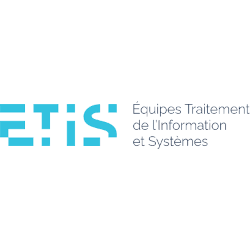
08 Jan Post-Doc Position With Friedemann Zenke at the FMI, Switzerland
Post-Doc Position With Friedemann Zenke at the FMI, Switzerland
Are you looking for a PhD project? Do you want to engage in a new scientific adventure at the intersection of robotics and neuroscience?
This might be the right place for you!
About the position
In the context of my Junior Professor Chair investigating the affective and social determinants of intelligent behavior in brains and machines, I am looking to hire a PhD student to join my new team in spring 2023.
Your project will focus on one of the following topics (details below):
- Affective and social determinants of visual attention orienting
- Affective and social neuromodulation of decision-making processes
You will have the opportunity to investigate how neurorobotics and computational modeling can help better understand the brain and/or how modeling brain mechanisms can contribute to the development of future intelligent machines. Your tasks will include reviewing the literature, developing new models, running experiments, analyzing data, writing scientific articles, and presenting your work at scientific conferences and public events (lab visits, public outreach, etc.).
This position is a 3-year PhD contract fully funded by my Junior Professor Chair. Your project will be carried out at the ETIS Lab (CNRS UMR8051) at CY Cergy Paris Université (see About the lab), under my primary supervision and a co-supervision by Prof. Lola Canamero. Moreover, you will be integrated in a larger, ambitious project including internal and external collaborations from which you will be able to benefit.
Topic 1 : Affective and social determinants of visual attention orienting
In complex environments, systems with limited computational resources need effective ways to allocate those resources and to focus on processing what is important. Despite striking advances in computer vision, attentional capabilities remain rather limited. Attention is often treated as a “neutral” mechanism merely dedicated to extracting objects from the visual scene. This contrasts with human visual attention where emotionally and socially relevant stimuli get priority access to mental resources. Typically, faces attract attention; and more so if they express anger or fear. Building a computational model accounting for these crucial aspects would help unveil the role of affective and social factor in visual attention orienting and help develop novel solutions for autonomous social robots.
Topic 2 : Affective and social neuromodulation of decision-making processes
Neuromodulators such as dopamine and acetylcholine are known to play an important role in the brain processes underlying decision-making: learning about available options, estimating uncertainty, selecting actions, and so on. Neuromodulators have also been shown to contribute to related affective and social processes like social reinforcement, prosocial behaviors, or the processing of emotional stimuli. Because neuromodulators can have widespread and sometimes superimposed effects, their function and underlying computational principles remain poorly understood. Building a computational model accounting for these important mechanisms would help uncover the role of certain neuromodulators in the affective and social dimension of decision-making and help develop novel solutions for autonomous social robots.
About the lab
The PhD project will be carried out in the NEURO (neurocybernetics) group at ETIS (UMR8051). ETIS is a joint lab between CY Cergy Paris Université, ENSEA and CNRS, and a prominent research unit in computer science and information technology in France.
NEURO is one of ETIS’s four multi-PI groups and is specialized in neurorobotics, computational neuroscience, and brain-inspired artificial intelligence. The group’s research areas include developmental learning, navigation, human-robot interaction, affective and social robotics, models of brain diseases, and more. NEURO has built a world-class reputation and has become a major actor in these research areas in France with multiple national and international collaborations.
About the PI
I am Marwen Belkaid. Since September 2022, I hold a Junior Professor Chair in Neuroscience and Robotics on the topic of “Bio-Inspired Modeling of Cognitive Functions and Adaptive Behavior”. This chair’s objective is to lead an interdisciplinary research team investigating the affective and social determinants of intelligent behavior in brains and machines. Visit the Research page to learn more.
I care about my mentees’ well-being and careers. I am committed to providing a healthy, friendly work environment in which you can hopefully learn and thrive. I value motivation and human/interpersonal qualities as much as technical/scientific skills.
About you
For this position, you should meet the following requirements:
- Master’s degree or equivalent in computer science, cognitive science, engineering, or related disciplines.
- Excellent programming skills
- Proficiency in spoken and written English
- Scientific curiosity and desire to work in an interdisciplinary project
- Intellectual rigor and proactive attitude
One or more of the following would be a plus:
- Previous experience in neurocomputational modeling
- Previous experience with artificial neural networks
- Previous experience using real robots
- Previous experience with statistical or model-based data analysis
About the application process
Phase 1: Applications should be sent by email (marwen.belkaid@ensea.fr) by 10 Jan 2023.
To apply, please send the following documents (in PDF):
- CV (1 or 2 pages max)
- Motivation letter including a short description of your background, a statement of your research interests and motivation for this position, and why you think you would be a good fit (1 page)
- Academic transcripts for Undergraduate and Master’s degrees
- Two reference letters or contact details of two referees
- One or two samples of scientific writing when available (i.e. publications or project reports; links to publicly available online documents are accepted)
For full consideration, all the items listed above should be included or the absence thereof justified. Applications will be reviewed as they come. Informal inquiries prior to full applications are welcome.
Phase 2: Shortlisted candidates will be invited for an interview between Jan and Feb 2023.
The selected candidate will ideally start in spring 2023, but starting date is negotiable.
Please click here to learn more.


Sorry, the comment form is closed at this time.